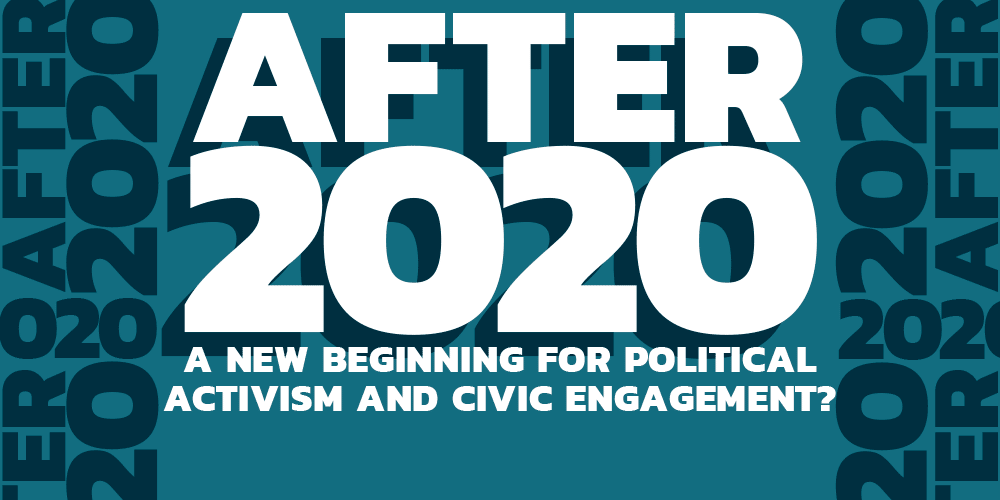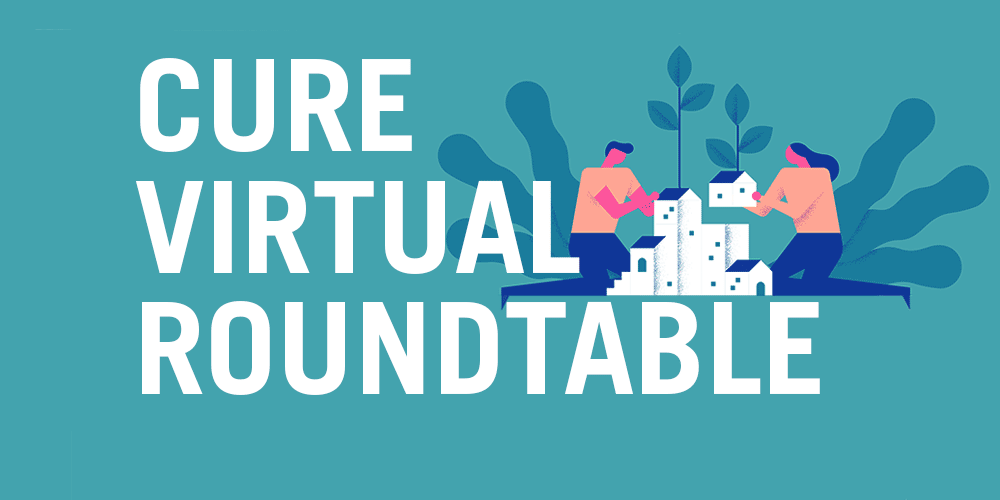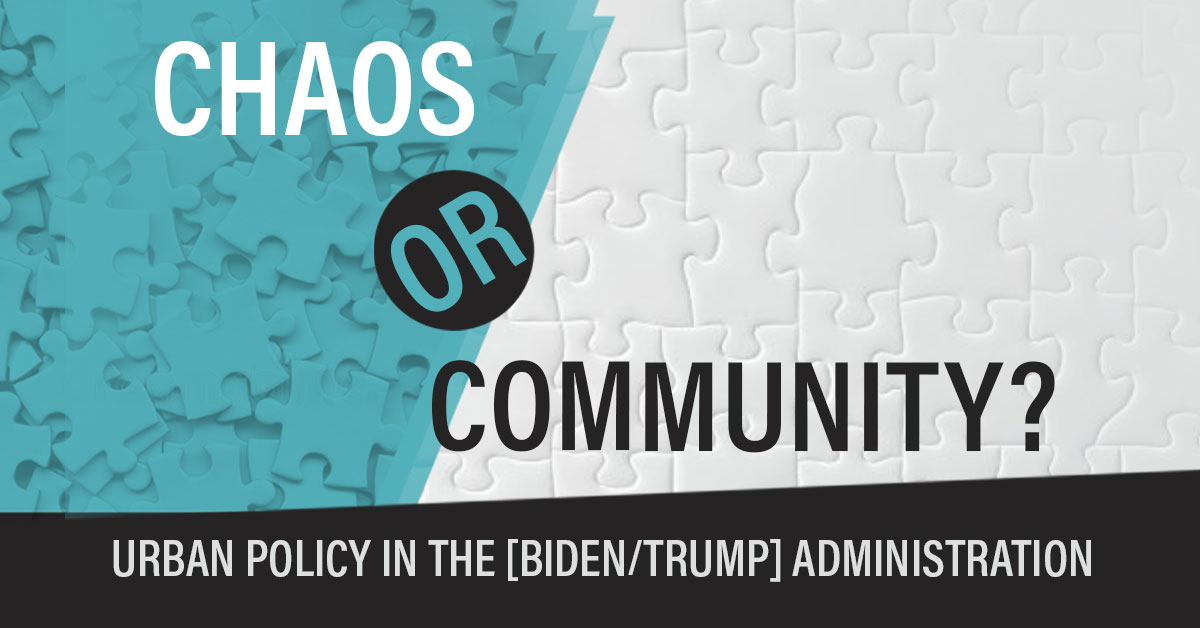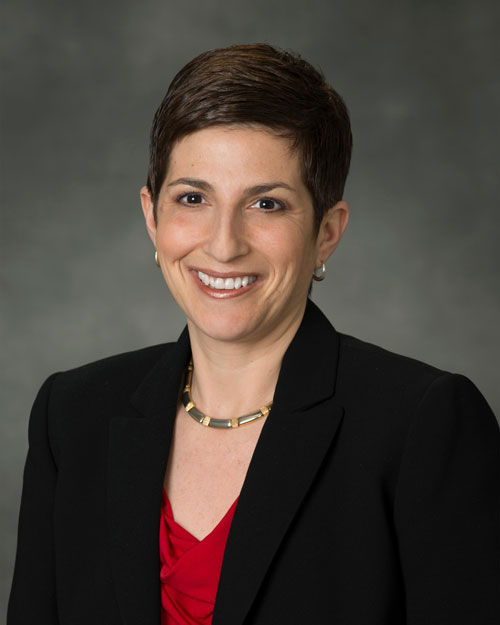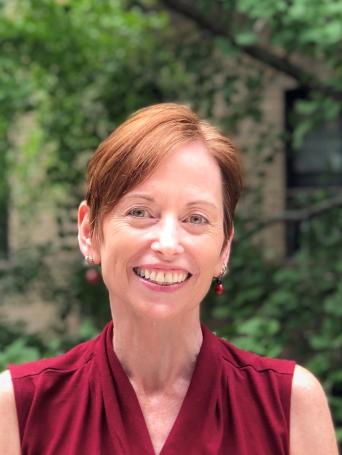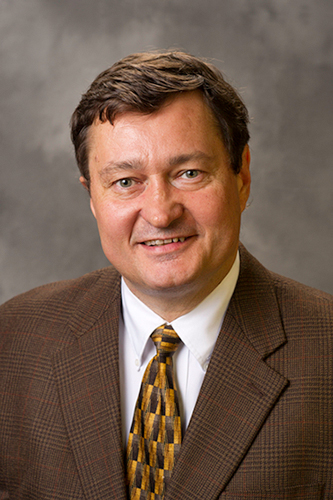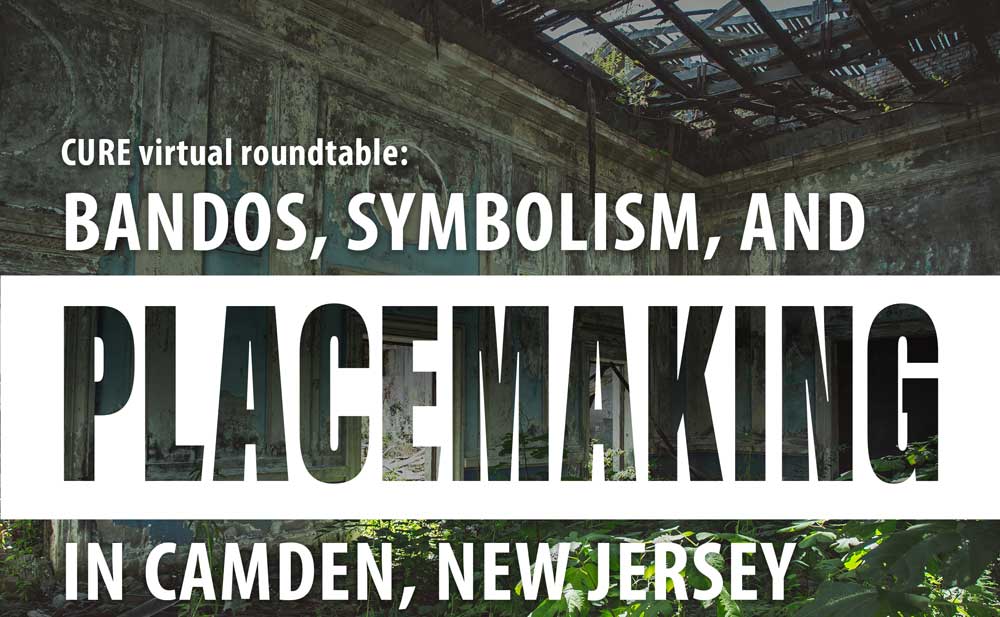
“Bandos, Symbolism, and Placemaking in Camden, NJ”
Thursday, March 25, 2021 from 12:30 – 1:30 p.m.
In her forthcoming book Toward Camden, Mercy Romero writes about the relationships that make and sustain the largely African American and Puerto Rican Cramer Hill neighborhood in Camden, New Jersey where she grew up. She walks the city and writes outdoors to think about the collapse and transformation of property. She revisits lost and empty houses—her family’s house, the Walt Whitman House, and the landscape of a vacant lot. Throughout, Romero engages with the aesthetics of fragment and ruin; her writing juts against idioms of redevelopment. She resists narratives of the city that are inextricable from crime and decline and witnesses everyday lives lived at the intersection of spatial and Puerto Rican diasporic memory.
Toward Camden travels between what official reports say and what the city’s vacant lots withhold. In this virtual roundtable, Mercy Romero, Ph.D. was joined by Vedra Chandler, Rev. PJ Craig, and Sis. Anetha Ann Perry to talk about landscape, dispossession, and the making of public memory in Camden, New Jersey.
Panelists:
-
Mercy Romero, Ph.D. Associate Professor of American Literature and American Studies, Hutchins School of Liberal Studies, Sonoma State University, CA Author of Toward Camden (Black Outdoors: Innovations in the Poetics of Study). Durham, N.C.: Duke University Press (release date 10/15/21).
-
Rev. PJ Craig Sr. Pastor, Cumberland Presbyterian Church of Germantown, TN Ph.D. candidate in Public Affairs at Rutgers–Camden. PJ’s work focuses on youth connections with place. In her current project, she worked alongside youth as co-researchers in North Philadelphia, PA and Camden, NJ to understand how youth shape stories about their neighborhoods and themselves.
-
Vedra Chandler (pronouns: she/her) Project Manager, Cooper’s Ferry Partnership. Born and raised in Camden, Vedra Chandler graduated from Harvard University with a degree in Government before pursuing a careers in business, music and now community development and creative placemaking. Since 2017 Vedra has worked as a project manager at Cooper’s Ferry Partnership where she uses the arts as a vehicle to tap into the potential of Camden city and its residents. She coordinates the Connect the Lots and A New View initiatives which revitalize underutilized spaces with vibrant programming and public art.
-
Moderator: Sis. Anetha Ann Perry Ph.D. candidate in Public Affairs at Rutgers–Camden. Sis. Anetha Ann Perry grew up in Camden. In her dissertation research she uses auto-ethnography to tell the story of her family’s home, Perry House, and investigates the uses of “good neighboring” as an African American survival strategy. Despite evolving societal dynamics, Anetha’s study purports to show how settlement houses such as Perry House practice “good neighboring” as part of a modern-day underground railroad support system to African Americans living in urban fragmented communities.

